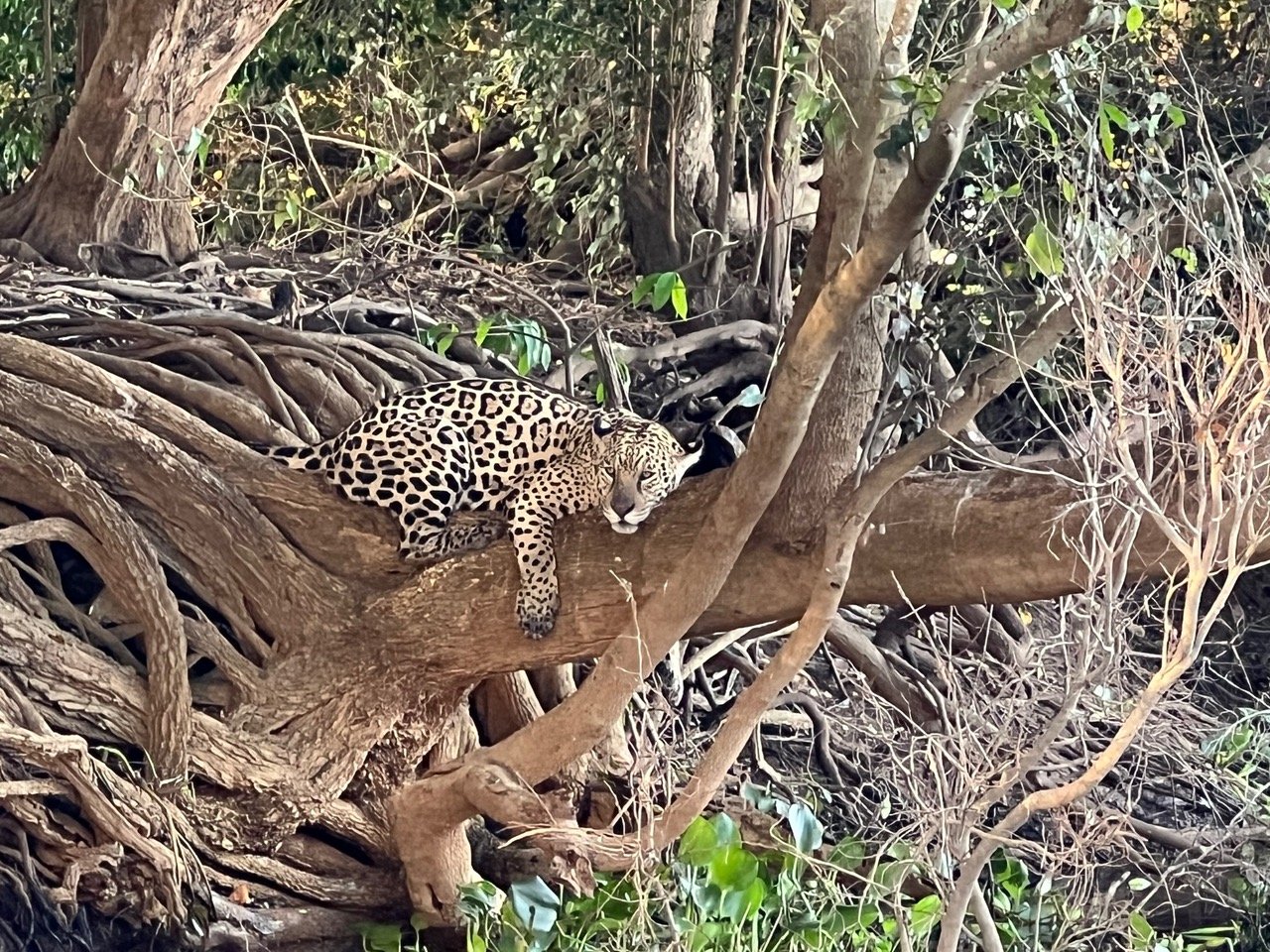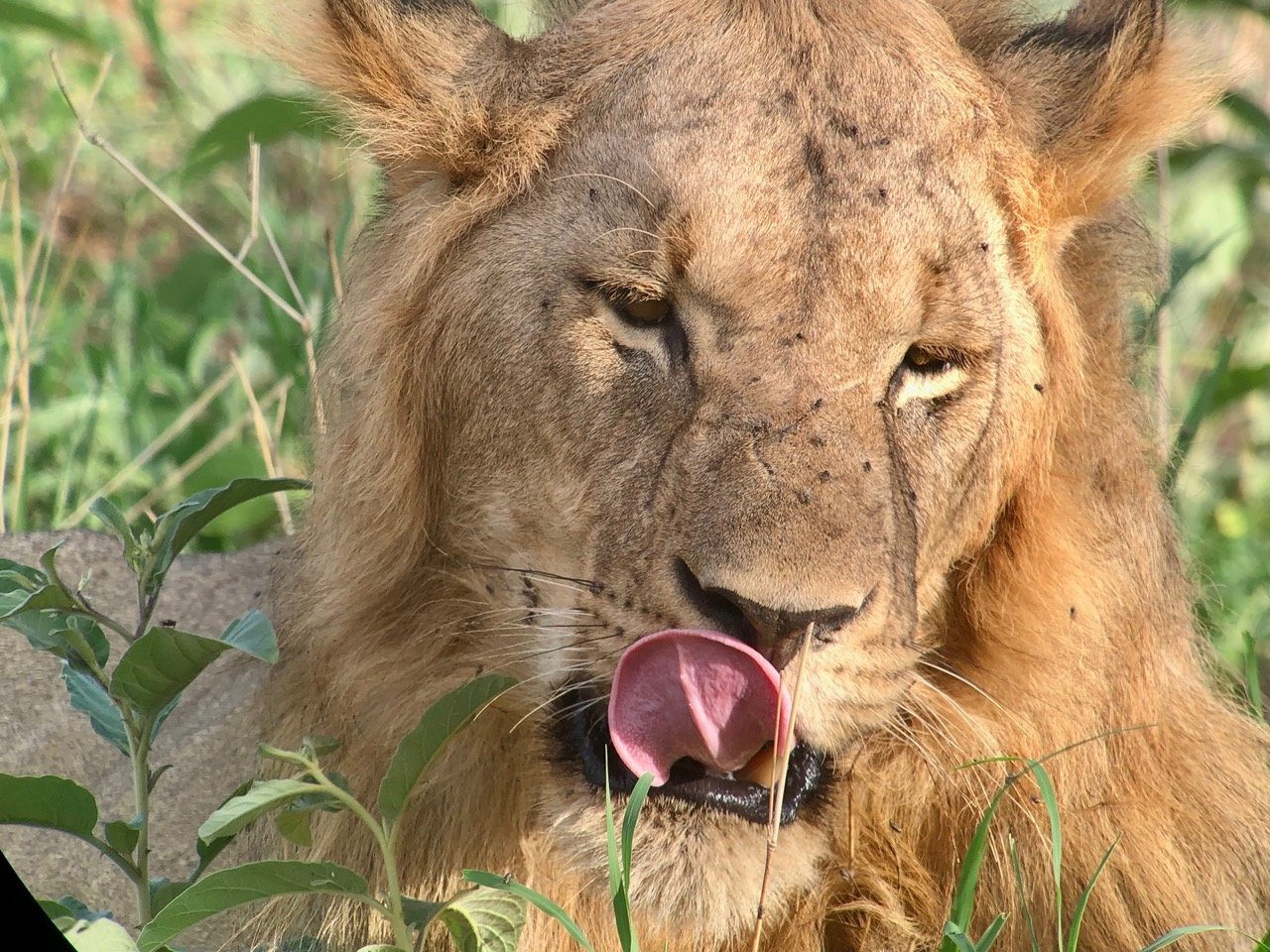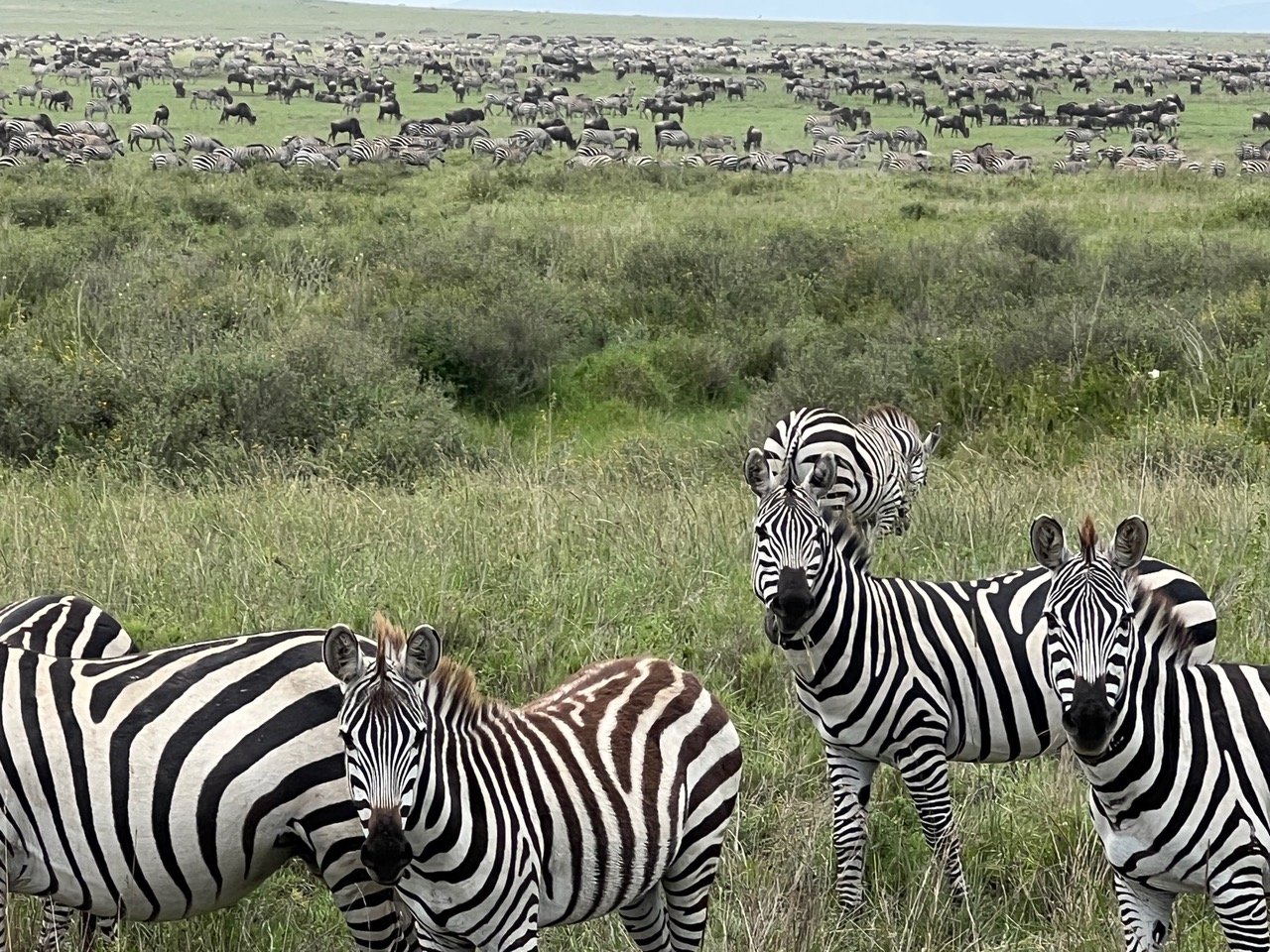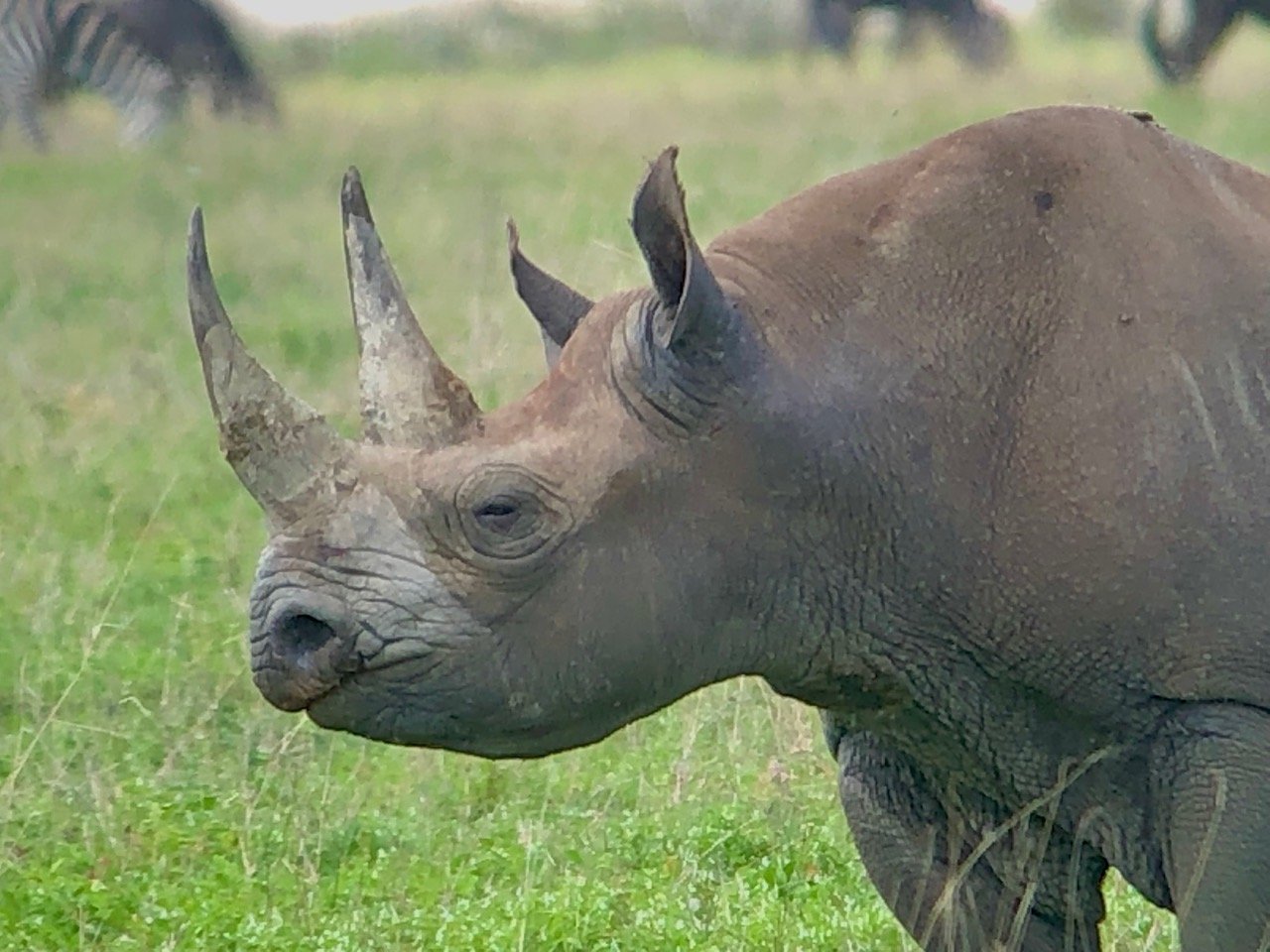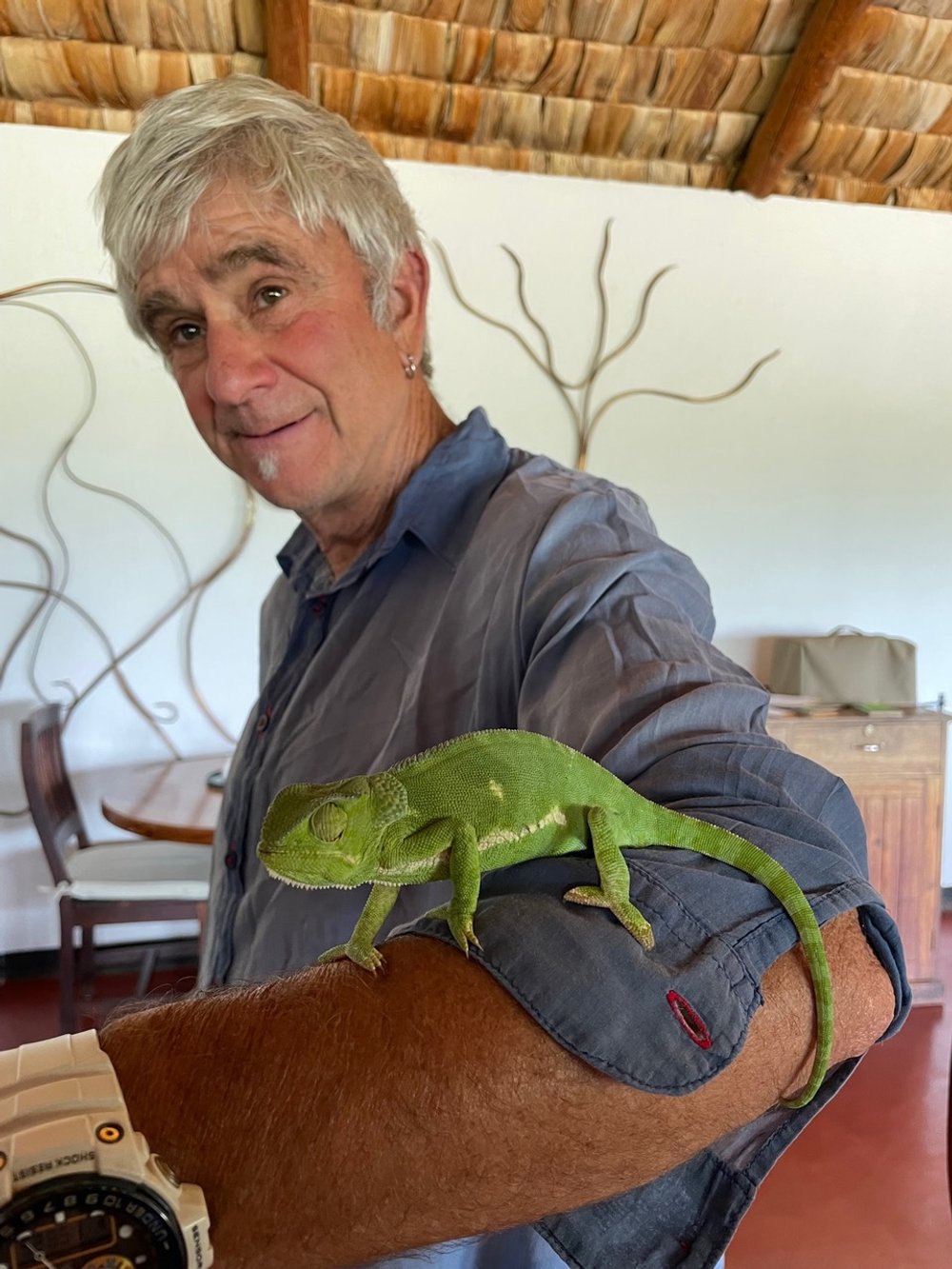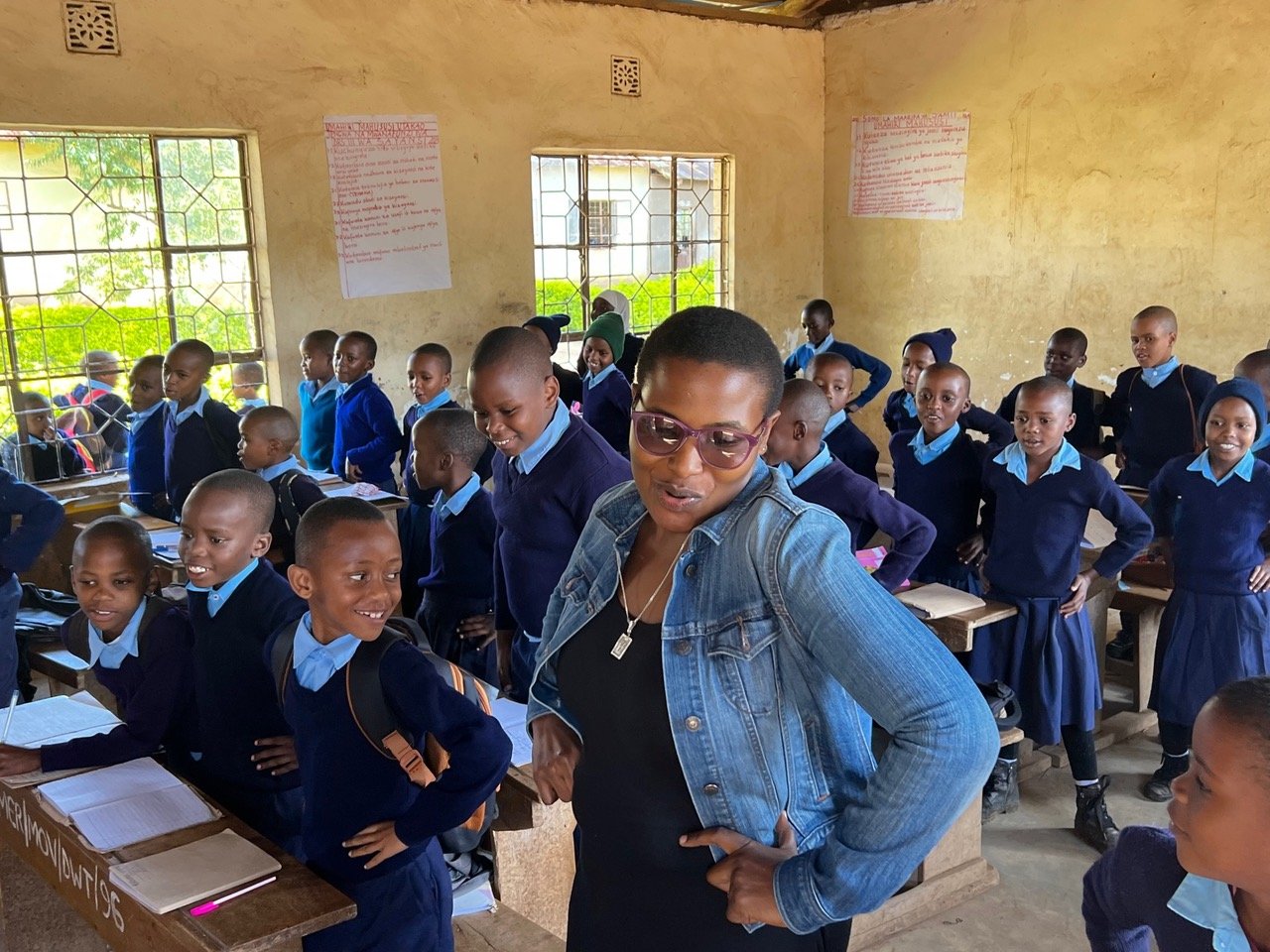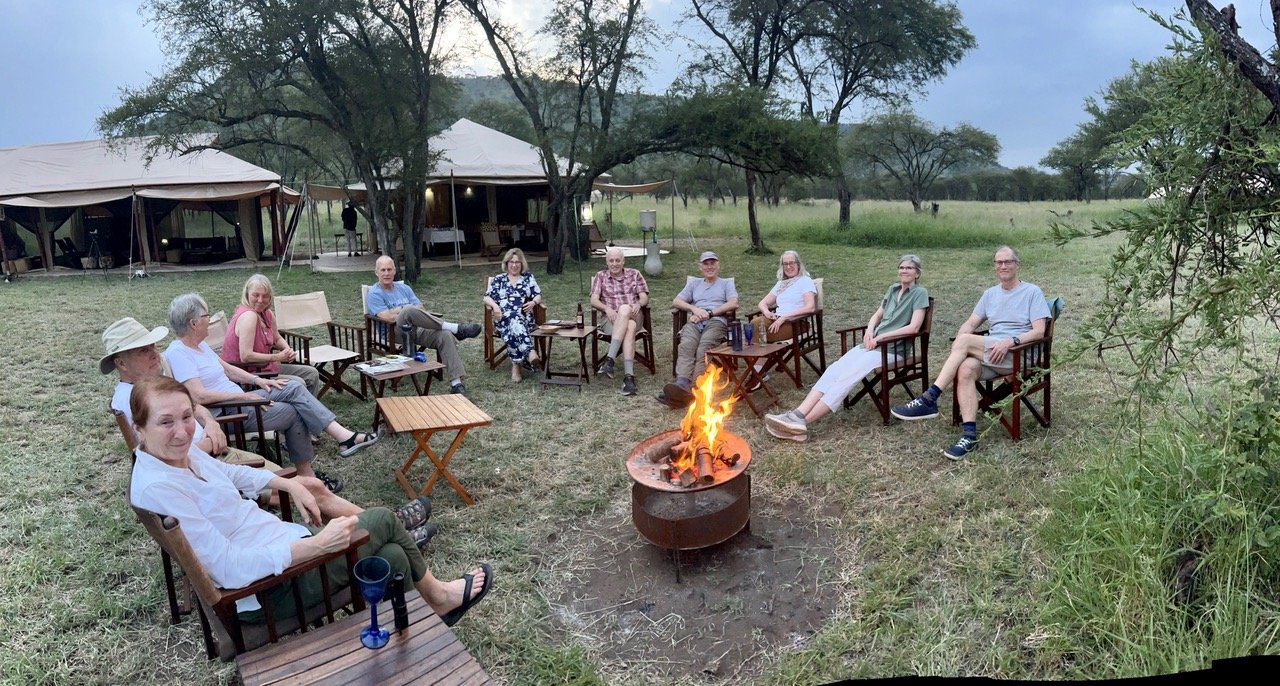Doggie Days
Happy “Dog Days” of summer:
So this expression does not have anything to do with your dog lying out in the hot sun panting. Instead it is derived from the constellation - Canis Major - the big dog. The sun in August “appears" to be in this collection of stars. Therefore, these are the DOG DAYS.
Now I am off on a 6 day 190 mile mountain bike ride just north of Escalante, Utah!
22 most beautiful waterfalls in the world.
New words added to the Merriam-Webster dictionary.
Vegetarian dinner party.
Totally quiet flight of a barn owl.
Scary eyes on moths and butterflies.
My recent three weeks in Brazil were fantastic and the next trips (there will be two) to the Pantanal, the Chapada and the Amazon Basin are in October 2024. Stay tuned. This is one of the many jaguars we encountered last month. His name is Rio.
There have been a few last minute (so to speak) openings on the three Tanzania safaris next January and February. Contact me soon for more information, details are below.
I first traveled to Africa in 1973 and spent about a year exploring Morocco, Algeria, Tunisia, Spanish Sahara, Mauritania, Senegal and Gambia. I fell in love with that diverse and fascinating continent. Since the early 1990s I spend every January and February in the Serengeti, witnessing the migration of one and a half million wildebeests. East Africa is the heart of one of the last remaining wildlife spectacles on earth. Everyone who visits this area longs to return. I strongly recommend seeing it now rather than later. Changes in this part of the world are rapid – political uncertainty and population explosion. But at this point the wildlife refuges in Tanzania are holding up very well. The country is doing a good job. And how much time do YOU have left? Not to be macabre but it is true.
I have a fantastic itinerary and have worked with the same ground operator and their excellent local guides since 1996. This is far and away my favorite Footloose Forays trip. I have had the great fortune to see many leopards in my life do a remarkable variety of things – mating, nursing, playing, killing, climbing, eating. But I have never seen this particular behavior before… especially when the Land Rover moved. Enjoy it, we sure did.
Woodland Kingfisher
Here are some of the black and white Colobus monkeys from a previous trip.
I recorded this beautiful dawn breaking across the Serengeti at the place we sometimes camp in the Serengeti– Moru Kopjes.
My international trips always fill up early for one important reason. If you're going to spend thousands of dollars and be intimately involved with a group of folks for 15 days, they better be great people. Nothing can spoil a trip faster than a difficult individual. I tend to attract clients that are compatible, flexible, highly educated and most of all – fun. I have a very high repeat business and I do not advertise. I use only word-of-mouth to fuel my natural history business. I can afford to be discriminating in my client base and it shows in all of my trips.
The land cost for 2024 is $10200. Current airfare is anywhere from $1100-$2500 (who knows) round-trip from San Francisco to Arusha in northern Tanzania (JRO). I have three trips offered and they all will fill. January and February 2024 may seem like a long way off, but it's not. If you're interested please fill out the registration form and send in the non-refundable deposit $2500 soon. This way you are guaranteed a spot on the trip. If you have any concerns or questions please contact me immediately. I am also happy to put you in contact with any one of the participants of previous trips. In fact, I encourage it; they had the best time of their lives.
(this is my tent, note the hula hoop)
January and February are the best months to be in the Serengeti and for that reason it's imperative that you sign up right away so I can put deposits on the Lodge and camping places. Thompson safaris, our tour operator, have been operating successfully in Tanzania for the last 40 years and do an excellent job. Plus, they have an office in the United States. I am happy to answer any questions that you may have.
Itinerary
JANUARY 13- 30, 2024 (added trip = itinerary the same)
JANUARY 29 TO FEBRUARY 14, 2024
FEBRUARY 14 to 29, 2024
January 29 (February 14): Leave SFO (NY, Miami, LA, Denver) to Amsterdam or directly to TZ. Long flight, 10 hours. Overnight in Amsterdam on your own. Or go earlier and spend a few days.
January 30 (February 15): Depart Amsterdam and fly directly to Arusha same day. Flight time is 9 hours. Overnight at Momella Lodge. Great welcome. This rustic lodge is nestled right in Arusha National Park on the hillside between Mr. Meru and Mt. Kilimanjaro. John Wayne slept here while filming the movie "Hatari" in 1961! Recuperate from long flight. Here for two nights.
January 31 (February 16): Arusha National Park. Our safari in Tanzania will begin in this dramatic park. From the rim of Ngurdoto Crater we will view wildlife in this "reserve within a reserve." We'll explore the briny Momella Lakes where different mineral content and algae yield lakes of various colors and different bird communities. Drive through a beautiful montane forest with sweeping views all the way to the very end of the road where we'll explore the forest near Meru Crater. Incredible breathtaking view of a nearly mile-high cliff, which rises above, an ash cone to Mt. Meru's extinct volcanic summit. Ah, Africa -- Maasai giraffe, greater and lesser flamingoes, bush bucks, black and white Colobus monkeys, elephant, Cape buffalo, and much more. Momella Lodge.
February 1 (February 17): Tarangire National Park. Morning drive across the strikingly beautiful plateau grasslands and mountain vistas to Tarangire National Park. Zebras, wildebeest, gazelles, elephants, and other wildlife may be seen here. This park is different from all the others; it has rolling terrain, tall grass, and huge baobabs, lilac-breasted rollers, and handsome white-crowned shrikes may perch just an arm's length away. There's a good chance of seeing oryx, while waterbucks, impala, Grant's gazelle, impalas and giraffes are abundant.
Tarangire Safari Lodge (two nights). All accommodations are in twin bedded large tents on a concrete slab. The tents are in a long row, with a door to the attached bath. Bath has a shower, toilet, basin, mirror, and lights. The front of the tent has a sitting area with two chairs and is very nice. All meals and the bar are in a main building at the end of the row of tents. This is often the favorite lodge of the group.
February 2 (February 18): Full day to explore Tarangire National Park. Many many elephants and my favorite tree – the baobab.
February 3 (February 19): The Serengeti!! Depart this morning. Enter the Serengeti Plain. Morning drive from Tarangire into the rain shadow of the crater highlands. We'll go in search of the best game concentrations at this time of year, as we drop through acacia woodlands toward the breathtaking vista of seemingly endless short grass lowlands below --- the Serengeti Plain! It is remarkable.
The Serengeti is one of the largest and most important wildlife sanctuaries in the world. We'll explore the immense plains of the Serengeti, looking for leopard and lions, zebras, Thomson's gazelles, cheetah, and wild dogs. We'll look for elusive animals as well as hyenas, jackals, vultures, and wildlife of the kopjes -- rock hyraxes, mongooses, klipspringer, and dik dik. And we are there during one of the greatest wildlife spectacles in the world --- the wildebeest migration. Three days of classic tented camping at the Moru Kopjes Camp or the Seronera area. The location depends on the National Park rules.
The Afrikaans "kopje" (pronounced copy) is the term commonly used for the rocky outcrops technically known as inselbergs. They consist of very old granite, which, due to erosion, has broken up into a rough and jumbled surface. In the open grasslands, where the countryside has been more or less leveled off by deposits of dust and ash from local volcanoes, the kopjes stand out against the surrounding plain.
Kopjes are remarkable in that they have their own range of vegetation and wildlife; they are islands in a sea of grass. On the plains where there is little shelter from the sun, they provide shade and protection in a habitat free from the dangers of fire and flood. Every nature special on East Africa shows the kopjes. They are totally cool (quote from 8-year-old) and we spend a lot of time exploring them.
February 4-5 (February 20-21): Full day of wildlife viewing in the Moru Kopjes area.
February 6-7 (February 22-23): after breakfast we travel then to Ndutu Lodge. Nice break from camping, food is superb. For two nights we stay at the Ndutu Lodge. It has all twin-bedded rooms all in a row with the restaurant at one end. The rooms are beautiful. It is the small pleasures of life that one appreciates on safari. Wildlife abounds and we are in the middle of the Great Migration. This region is famous for many of the filmmakers who have set up camp and documented the abundant wildlife here. Hugo van Lewick (married to Jane Goodall) had a camp since the 1970’s and the BBC did some nighttime filming several years ago. The footage is astounding! We have the opportunity to see hundreds of thousands of wildebeest gather here to graze on the lush grass and give birth to their young. Your room overlooks Lake Ndutu, zebras, giraffes and even lions stroll by just off the grounds.
February 8 (February 24): We have a drive back to our same camp, staff and tents. Full day of wildlife viewing in the Moru Kopjes area or the Seronera area.
February 9 (February 25): Full day of wildlife viewing in the Moru Kopjes area.
February 10: (February 26): Drive through the profusion of wildebeest near Ndutu, past the Naabi Hills at the Serengeti Park Entrance to Olduvai Gorge, where we will visit sites where Australopithecus boisei and Homo habilis have been found. Here in a sequence of two million years of sediment, Louis and Mary Leakey labored for 27 years before finding their first hominid skull! Depart Olduvai for the cool, moss-draped montane forest at the rim of the Ngorongoro Crater. The view of the 10-mile wide crater will leave you spellbound. We drop down into the crater for some fantastic game viewing as we wend our way to Thomson’s Ngorongoro Nyumba Camp. This semi-permanent tented camp is located in a beautiful acacia forest up on the eastern rim of the Crater. It can be much cooler, because it is about 6,700' above sea level. Ngorongoro Crater.
February 11 (February 27): Ngorongoro Crater. Wake to the early light over Ngorongoro Crater. The awe-inspiring scenery and abundant wildlife are captivating as we go exploring down into the crater in safari vehicles. From the flamingos to the zebra in golden evening light, this is a day for photography. Predators are numerous here. Look for lions, cheetah, golden jackals, and spotted hyenas. With luck serval cats and other wildlife may be seen. Rhino sightings are also a distinct possibility. Late afternoon we drive back through the candelabra forest of the crater slopes to our cozy camp.
February 12 (February 28): Ngorongoro Crater to Karatu. Enjoy a last morning overlooking Ngorongoro Crater, then drive from the cool, misty rim of the crater through a rich corn and wheat-farming district to Gibbs Farm. For many people Gibbs Farm is the most surprising treat of the trip. One person described the food of Reggie the chef as the Chez Panisse of Tanzania. It is a small intimate hotel perched on the outer slopes of the Ngorongoro Crater highlands -- a real piece (peace) of civilization. Walk to the elephant salt lick and waterfall. Relax in the beautiful gardens and reflect on our African experience. Overnight at Gibbs.
Feb. 13 (February 29): Early morning departure to Arusha, the hub of the "northern safari circuit". This busy city is situated beneath the impressive, 15,067-foot summit of Mt. Meru. Arusha offers opportunities to purchase crafts and souvenirs and to sample the atmosphere of a bustling African town. We have day rooms available near the airport Enjoy a farewell lunch and the rest of the day in Arusha before our evening flight to Amsterdam.
February 14 (March 1): Arrive Amsterdam and connect to USA flight. Killer travel day but we are finally home.
Tanzania and the Serengeti
General Conditions:
Reservations are on a first-come basis and limited 17. Cost is $10,200 land only. Single Supplement is $1200. Once registered, Thomson Safaris will forward additional information on visa application and exact flights to book. Non- refundable deposit of $2500 to reserve your spot.
What to Expect:
An exceptional exploration for the wildlife enthusiast of superb national parks and refuges in Tanzania, led by excellent naturalists. Travel by 7-passenger 4-wheel drive safari combis (each passenger will have a window seat). Outings will be at a leisurely pace suitable for wildlife observation. Typically, temperatures are spring like (in the 70's). Ngorongoro Crater is at 7500' and is cold at night. We camp out for five nights in the Serengeti and stay in very comfortable lodges the rest of the time. If you have any questions about your own health, please consult your physician before registering. This safari is a tremendous experience for the adventurous traveler in good health that can tolerate bumpy dirt roads for the chance to discover the awesome landscapes and superb national parks of East Africa. (No smoking in vehicles, during lectures or meals, please.)
Safari Fee Includes:
Land transport, airport transfers with the group, accommodations (twin share with bath in very nice hotels and lodges), camping expenses, all meals in Tanzania, park/museum entrance fees, visa, baggage handling, leadership, administration.
Safari Fee Does Not Include:
Meals and hotel in Europe, tips to safari drivers and naturalist guides, personal items such as alcoholic beverages, laundry, phone calls, extra bottled water, snacks, passport, personal insurance, or extra foreign airport taxes.
Single Accommodations:
A limited number of singles are available, price is $1200, but may not be possible in some of the Lodges because of the busy season. If you do not have a roommate and we cannot assign one, you must pay the extra cost of a single.
Air Fare and Airline Ticketing:
Please book your own international air to Arusha or let Thomson Safaris do it for you. Please use KLM flight to arrive and depart Arusha on the date indicated in the itinerary. Any other flights will incur extra transfer charges from Thomson Safaris.
Reservations, Deposits and Payment:
Please mail a non-refundable deposit of $2500 per person with the completed reservation form. Check payable to Footloose Forays. The balance is due 90 days before departure. Thomson Safaris will bill you separately for any extra services requested.
Cancellations and Refunds:
$500 is refundable. After July 15, 2023 there will be no refund of the $2500 deposit. After the balance is paid there are no refunds unless your place is resold. There are no refunds for unused meals, accommodations, or other trip features. I suggest that you purchase trip cancellation insurance.
Cancelled Trips:
I reserve the right to cancel any trip prior to scheduled departure due to undersubscription or logistical problems (strikes, nuclear war, etc.). I will refund all payments in full. In no event shall my liability exceed the obligation to refund the amount you paid me. Trip cancellation due to undersubscription usually occurs one month before departure.
Airline Clause:
The airlines and/or travel agencies concerned are not to be held responsible for any act, omission, or event during the time the passengers are not aboard the aircraft. The passenger tickets in use by the airlines when issued shall constitute the sole contract between the airline and the purchaser of these tickets or the passenger.
Withdrawal:
I reserve the right to require any participant to withdraw from an expedition at any time if I deem his or her acts or conduct to be detrimental to or incompatible with the interest, harmony, comfort or welfare of the expedition. In such cases no refunds will be given.
Medical:
Although this trip is not physically demanding, you must be in general good health to participate. It is the participant’s responsibility to judge his or her own physical capabilities for these travel activities. Anyone with medical problems or restrictions must make them known to me well in advance of the trip and should have a personal supply of any special medicine needed. I have the right to disqualify any member of the group at any time if considered medically necessary; no refunds will be made under such circumstances. I take no responsibility for special arrangements required by passengers physically unable to complete a trip and I assume no liability regarding provision of medical care.
Insurance:
I do not carry liability insurance for international trips. You may want to consider getting travelers insurance. Travel Guard 800-826-4919 or Insure my Trip.
Smoking:
There is no smoking in our vans, buses, or hotel rooms.
Suppliers of Services:
I am performing a service by taking people on worthwhile natural history expeditions. However, I am acting independently and I have no business association with any boat owner, resort, hotel, carrier or other services. Any and all claims for inadequate performance or nonperformance of such services may be made against the supplier or those services but shall not be made against me. OK?
Flap-eared chameleon and yours truly
We have supported this school in Arusha since 2004.
Some of the wonderful Thomson guides I have worked with since 1996!!
Relaxing at our exclusive camp, set up just for me!!
If you are serious and interested let me know ASAP. Then I will send you the proper forms and extensive details.
There is more room in the first departure. The second one is full. The third has one or two spaces.
Ok OK …. If I do not include a photo of my granddaughter some of you (Brian B. especially) will be disappointed.
At her recent graduation from pre-school aka Honey Bee. Next year to Kindergarten!
The name Alma also has several meanings in a variety of languages, and is generally translated to mean that the child "feeds one's soul" or "lifts the spirit”
Indeed so true.
